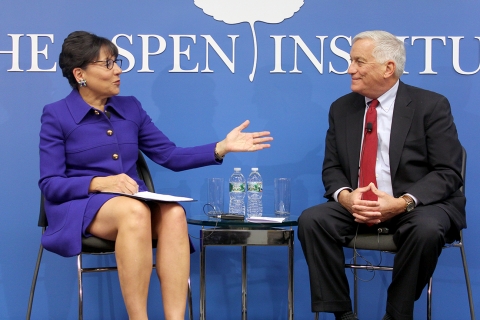Nov282016
Posted at 3:08 PM
As the economy becomes increasingly dependent on complex technology, automation and reorganization, the nation will face new workforce and economic development challenges. One prominent challenge is the need to provide the skills for tomorrow’s workforce. From 2002 to 2014, the share of high-skilled jobs in the economy increased by seven percent; and according to the 2016 OECD report, ‘New Forms of Work in the Digital Economy’, this trend will become more pronounced in the future. Access to skilled labor is a key factor when companies — domestic or international — choose to invest in the United States.
Across the country, business leaders have shared the concern that America’s workforce is not adequately prepared for many of the jobs they desperately need to fill. The availability of a skilled workforce is often cited as a primary factor considered by businesses in their investment decision process. According to the 2016 Economic Report of the President, 83% of jobs with an average wage of less than $20 per hour will be affected by automation. From 2002 to 2014, the share of high-skilled jobs in the economy increased by 7%. This trend will become more pronounced in the future. There was a near-record high of 5.5 million job openings in September 2016. Additionally, 300,000 jobs in manufacturing went unfilled. To address this challenge, for the first time, the U.S. Department of Commerce has made skills and workforce development a priority.
In April 2015, the Aspen Institute’s Workforce Strategies Initiative (AspenWSI), with their partner FutureWorks, was selected from among a dozen other applicants to partner with the Department of Commerce because of its proven track record and innovative work with workforce and leadership development. Under the award, Aspen would competitively select seven teams from different regions from across the country and document the strategies and lessons learned from these seven original teams and provide new learning tools and case studies that can help communities and regions across the nation develop their talent pipelines to fill in-demand jobs.
The new partnership identifies and supports the expansion of employer-led strategies promoting the development of skills-based workforce training. The learning exchanges created through this initiative will help meet the skills needs of businesses by identifying, promoting, and expanding on successful industry-driven, regional partnerships for talent development. The final product is a playbook that provides communities with valuable best practices and guidance on actions communities across the nation can take as they consider employer-driven solutions to skills challenges.
Seven teams in Buffalo, New York; Phoenix; Houston; the San Francisco Bay Area; Northwest Georgia; New York City; and Washington D.C.; have worked to identify and develop skills in their respective regions based on their unique capabilities. The teams will share best practices with the six other teams and other communities, allowing for the creation and enhancement of new workforce development approaches.
For example, the Arizona Communities that Work Partnership discovered that local businesses experienced difficulty obtaining information about the skills needed for IT workers. The partnership implemented an “advanced electronic brainstorming” approach, receiving input from more than 200 people regarding how to address the problem. The approach offered Arizona businesses the ability to discuss the needed IT-specific skills, as well as address IT talent pipeline gaps. The Arizona Communities that Work Partnership is just one of the many success stories occurring nationwide.
The Department of Commerce is also incorporating the business perspective into the skills dialogue as part of the Skills for Business Agenda. The Commerce Department’s Economic Development Administration is leading an integrated strategy by combining both economic development and workforce development to improve conditions for economic growth. This approach enhances the skills of the workforce in an effort to drive innovation and economic prosperity.
Due to the changing world of work, communities faces numerous challenges. In a 21st century economy, a modern workforce equipped with the skills necessary to compete and thrive globally proves essential. By providing the framework to share common best practices and developing new partnerships, the Communities Work Partnership is an opportunity to provide businesses with a skilled labor pool, thereby ensuring that communities are prepared to take on the challenges of the new economy.



